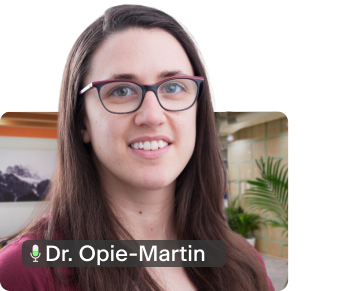Webinar recap: Does the age of onset in SOD1-mediated ALS affect the speed of progression?

In this webinar, Dr. Sarah Opie-Martin and Dr. Paul Wicks discuss the latest research on SOD1 gene variants and their association with ALS. The webinar explores the implications of these findings for the diagnosis and treatment of ALS, and discusses potential avenues for future research.
The link to the full webinar is here; a brief summary is below for easy reference.
About the speakers
Paul Wicks, PhD
Paul Wicks is a consultant to clinical research and digital therapeutics companies, including Sano Genetics, Ada Health, and Woebot Health. Paul spent 10+ years at PatientsLikeMe, starting in R&D and finishing his time at PLM as VP of Innovation.
Dr. Sarah Opie Martin
Dr. Sarah Opie Martin is a dedicated data scientist with expertise in web development and database design, specialising in medical research projects focused on ALS. With a strong background in clinical audit and guidelines, she brings a deep understanding of medical statistics and clinical research, utilising her programming skills to clean and analyse large clinical datasets for her PhD in Clinical Neuroscience. Driven by her passion for improving patient care and public healthcare information, she leverages her data analysis and programming expertise to transform healthcare outcomes and contribute to the advancement of medical knowledge.
Highlights from the webinar
Does the age of onset of SOD1-mediated ALS affect the speed of progression?
Dr. Opie-Martin’s latest research study showed that onset and survival are decoupled in SOD1-ALS, and that certain variants are associated with distinct survival trajectories. Another important insight from the webinar is the need for a large clinical data set in people with SOD1-ALS. The aim of the project is to inform clinical trial design and increase the power of the study. By annotating the variants and grouping them together, researchers can increase the sample size and reduce the variability between groups.
What are the challenges of reconciling large and diverse data sets?
The webinar explored the challenges of reconciling data sets from multiple countries and different family histories. With different definitions of family history and varying amounts of detail, it is difficult to make good statistical inferences. However, Dr. Opie-Martin’s study found that family history did not affect the age of onset or disease duration.
Additionally, the webinar highlighted the importance of understanding user needs in evaluating user feedback effectively. By compiling user research methods into a document, researchers can focus on the most important aspects of user feedback and make the necessary improvements.
Summary
This webinar provided valuable insights into the latest research on SOD1 gene variants and their association with ALS. By understanding the implications of these findings, researchers can inform clinical trial design and potentially develop new treatments for ALS.


